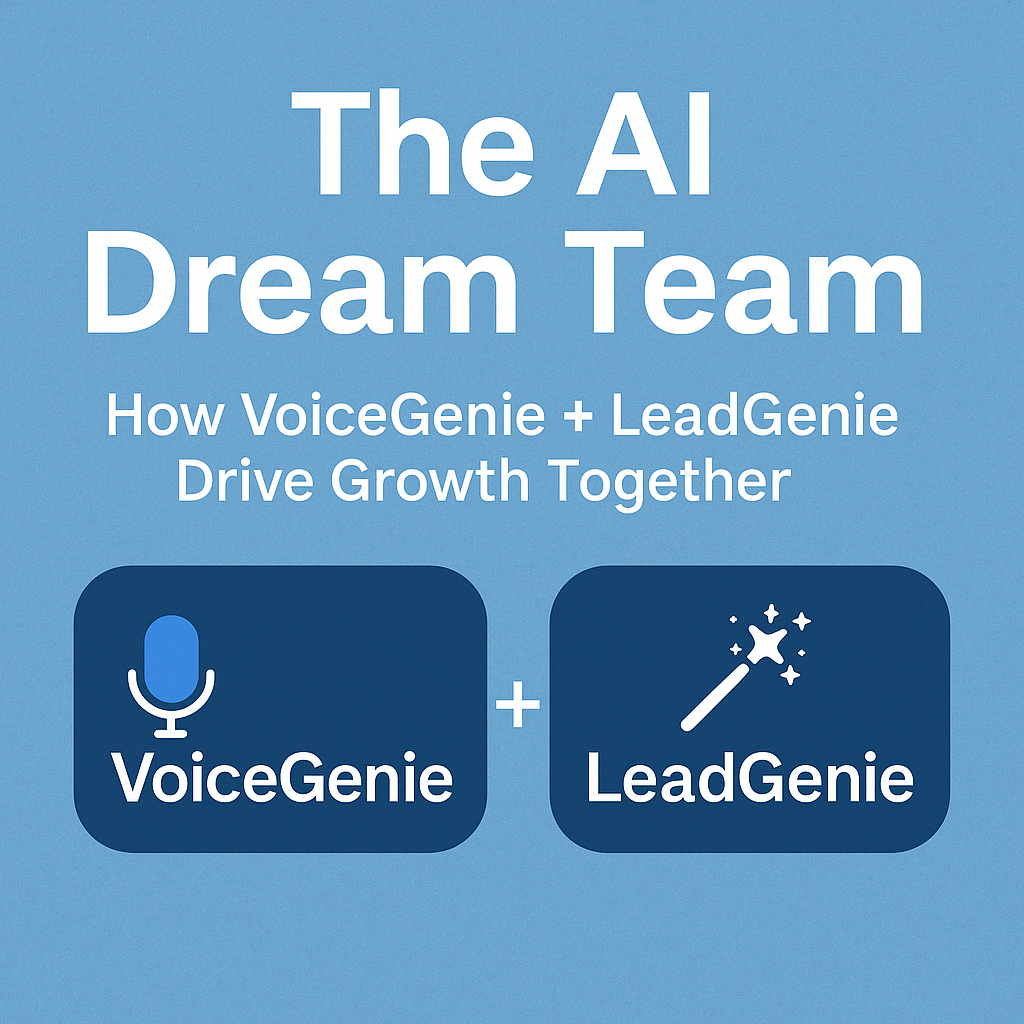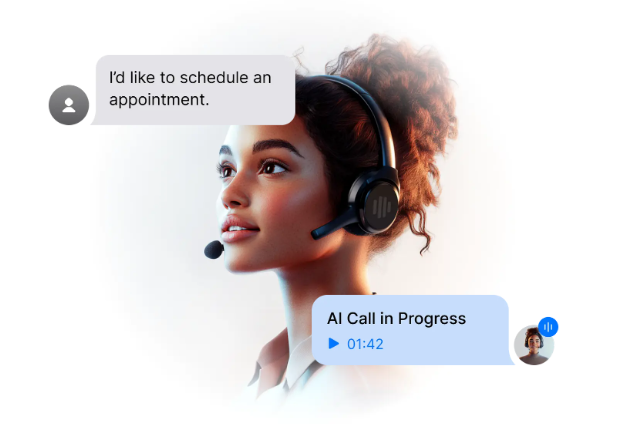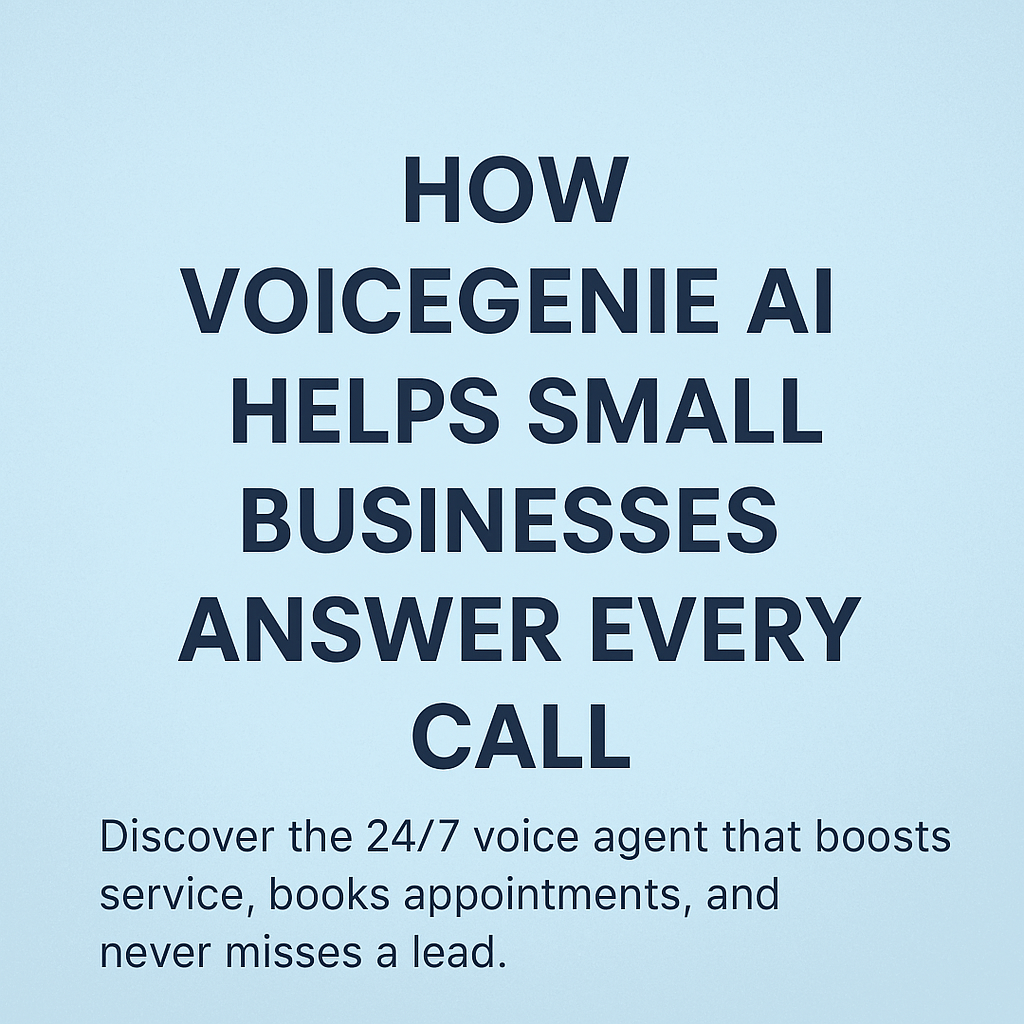AI-Powered Business Transformation: How to Successfully Implement AI in Your Company
Beyond the Hype – A Practical Guide to Driving Real Business Value with AI

Introduction: Moving AI from Theory to Real-World Impact
Artificial intelligence (AI) is no longer a futuristic concept—it’s actively reshaping industries and redefining business strategies. Yet, many companies struggle to move beyond experimental projects into full-scale AI adoption. The challenge? Unclear ROI, poor data quality, and a lack of strategic implementation.
Gartner predicts that by the end of 2025, 30% of AI projects will fail due to these issues. This means that for businesses to leverage AI effectively, they must adopt a structured approach focused on measurable results, industry-specific applications, and ethical AI deployment.
In this post, we’ll explore how businesses can integrate AI successfully, maximize ROI, and transform operations using LeadGenie AI Agents for automation, customer engagement, and sales growth.
1. Define Clear AI Goals to Maximize ROI
AI for Business Growth Starts with Clear Outcomes
One of the biggest mistakes companies make when implementing AI is failing to define clear objectives. AI should drive measurable business outcomes such as:
✔
Reducing operational costs through automation
✔
Improving customer service with AI-powered agents
✔
Increasing sales conversions by automating lead nurturing
✔
Enhancing decision-making through predictive analytics
For example, LeadGenie AI Agents help businesses automate lead generation and appointment setting, ensuring sales teams only spend time on high-value prospects. By implementing AI with a clear objective—such as booking 30+ qualified appointments per month—companies can track progress and measure ROI effectively.
💡 Pro Tip: Start with a pilot project focused on one core business challenge, measure the results, and scale AI adoption from there.
2. Industry-Specific AI: Tailoring AI for Business Success
Why One-Size-Fits-All AI Doesn’t Work
Not all AI solutions are created equal. A generic AI system won’t deliver the same results across different industries. Businesses need AI tools built for their specific needs to achieve real impact.
✔
Retail & E-commerce: AI-driven chatbots for customer inquiries and personalized product recommendations
✔
Financial Services: AI-powered fraud detection and automated underwriting
✔
Healthcare: AI-driven patient engagement and diagnostic support
✔
Professional Services: AI lead generation and client acquisition automation
🚀 Case Study: A financial services firm struggling with low-quality leads and inconsistent client acquisition adopted LeadGenie AI Agents to automate lead scoring and outreach. Within three months, they saw a 40% increase in qualified leads and a 25% reduction in acquisition costs.
💡 Pro Tip: Choose AI tools that align with your industry’s unique challenges for the best results.
3. Ethical AI & Compliance: Building Trust in AI-Driven Decisions
Responsible AI for Long-Term Business Success
With AI automating critical decisions, businesses must prioritize ethical AI governance to avoid biases, ensure compliance, and maintain customer trust.
✔
Data Privacy & Security: AI must comply with regulations like GDPR & CCPA
✔
Transparency: AI decisions should be explainable and accountable
✔
Bias Mitigation: AI models must be trained on diverse, unbiased datasets
💡 Pro Tip: LeadGenie AI Agents follow strict ethical AI guidelines, ensuring fairness, security, and compliance in customer interactions, lead scoring, and business automation.
4. Scaling AI: From Small-Scale Projects to Business-Wide Integration
How to Expand AI Adoption Without Disrupting Your Business
Once a company successfully integrates AI in one department, the next step is scaling AI adoption across multiple areas. This includes:
✔
AI for Sales & Marketing: Automating email campaigns, lead nurturing, and client outreach
✔
AI for Customer Service: Using AI agents to handle inquiries and FAQs
✔
AI for Operations: Predictive analytics for demand forecasting and workflow optimization
🚀 Example: A B2B company using AI-powered chatbots for lead qualification scaled AI adoption by implementing AI-powered email marketing and appointment scheduling—resulting in a 50% boost in conversion rates.
💡 Pro Tip: Implement AI gradually, ensuring seamless integration with existing processes to maximize efficiency without overwhelming teams.
FAQs: Understanding AI-Powered Business Transformation
Q1: What industries benefit most from AI adoption?
A: AI is transforming professional services, finance, healthcare, marketing, and sales by automating processes, enhancing customer engagement, and improving decision-making.
Q2: How can AI improve lead generation and sales?
A: AI-driven solutions like LeadGenie AI Agents automate prospect outreach, lead scoring, and follow-ups—ensuring sales teams only engage with qualified, high-intent leads.
Q3: Is AI difficult to implement in a small business?
A: Not at all! Many AI tools offer plug-and-play solutions that integrate easily with existing systems. The key is starting with a clear goal and expanding AI adoption over time.
Q4: How can businesses ensure AI compliance and ethical usage?
A: Companies must prioritize data privacy, transparency, and bias mitigation while ensuring AI-driven decisions align with industry regulations.
🚀 Take Action: Start Your AI Transformation Today
AI is not just a competitive advantage—it’s a necessity for future business success. Companies that embrace AI-powered automation now will lead the market in the next decade.
LeadGenie AI Agents help businesses:
✔ Automate lead generation & customer interactions
✔ Improve efficiency & decision-making
✔ Scale operations without increasing overhead
📅 Want to see how AI can drive real growth for your business?
🔗
Book a Free AI Strategy Call today!










